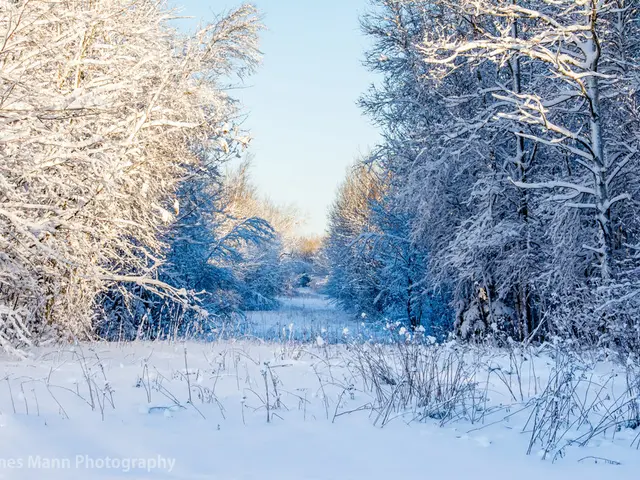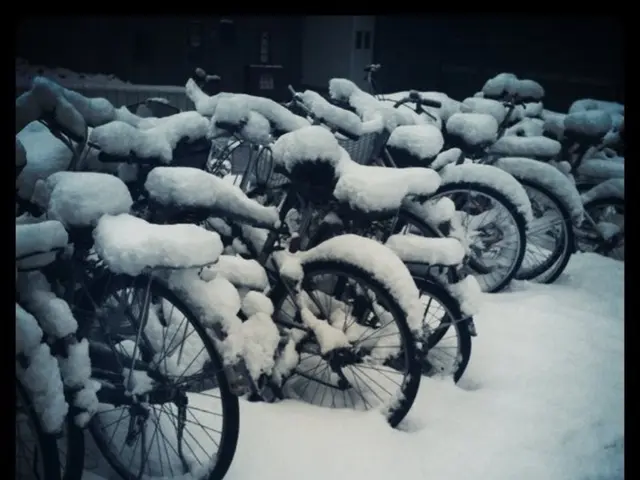International Makeover for Baku at COP29 Draws Contention
A Critique of the Renovation Frenzy in Baku, Ahead of COP29
As Baku gears up to host the annual United Nations climate conference, environmentalists will gather, yet, accusations of architectural desecration litter social media. Local architects argue flimsy makeovers on historical buildings are more detrimental than beneficial.
One Baku-based architect, Abdul Huseynov, chimed in on Facebook in mid-June. He protested the touch-ups on a historic building in the city center, declaring "a water-based primer intended for coating wall and ceiling, concrete and brick plastered surfaces is being used to cover stone cornices and column capitals - this is unacceptable!"
Another voice, Dilgam Ismayilov, blasted government agencies and the Baku Maintenance Service, a company with a history of securing major renovation projects in the capital. Allegedly, up to 200 buildings in Baku have suffered improper restoration techniques and materials.
"Enough already!" he exclaimed. "Can someone please put an end to this? This latest makeover strikes at the very heart of this city, this city's history."
The Baku Maintenance Service defended their work, dismissing social media criticism as groundless.
Concerned by the uproar, officials acted, if timidly. The head of the municipal Architecture and Urban Planning Department, Riad Gasimov, announced that some renovation projects have been delayed, and the Baku Maintenance Service started washing off treatments from some building facades.
Nonetheless, Ismayilov contends that the main problem lies in the lack of a systemic strategy guiding government repairs and renovations. Furthermore, he complained about the absence of public consultation.
"If the protection of our city matters to these institutions," Ismayilov wrote, "they should instate an open commission comprising residents and experts, not decision-makers huddled in offices."
This isn't the first controversy revolving around city improvements ahead of an international event. Before the 2015 European Games, officials sanctioned work to resurface Soviet-era buildings with polymeric foam, a highly flammable material. Later, a fire at an apartment building resulted in the tragic loss of 15 lives and numerous injuries, prompting President Ilham Aliyev to order the removal of these dangerous materials from renovated buildings.
Beyond public discontent about renovation work, mounting discontent seethes among some Baku residents over the fate of green spaces. Furthermore, a protest in Baku commemorating the violent police crackdown on environmental protesters in the village of Soyudlu in June 2022, sparked a brisk response from security forces. On June 21, security personnel raided activist Sara Rahimova's home, accusing her of posting fliers containing the slogans "#JusticeSöyüdlü" and "#FuckCOP29" in public areas around Baku. In response, the Feminist Peace Collective issued a statement stating Rahimova's actions were designed "to remind the cries of a community oppressed and ravaged by the insidious forces of capitalist extractivism and authoritarian rule."
This controversy over COP29 preparations also contains a political undertone. The country's parliament has reportedly asked the president to call early elections in light of COP29. Previously scheduled for the fall, moving the election forward would prevent it from conflicting with the climate conference. It would mark the second snap election in Azerbaijan this year, following the February early presidential vote won by Aliyev with a staggering 92% of the vote.
In another conundrum, the Baku White City Project, a significant urban redevelopment initiative aimed at modernizing the Black City area, raises its own set of concerns about cultural preservation. While some restorations of historical sites, such as the Momine Khatun Mausoleum, show the government's commitment to preserving cultural heritage[3], challenges persist with preserving specific historical buildings like the Bakikhanov house, which faces imminent collapse[5]. Such preservation controversies loom as Azerbaijan prepares to welcome UN environmentalists in November.
- Social media is filled with concerns about the use of inappropriate materials on historical buildings in Baku, as the city prepares for COP29.
- Environmentalists and local architects argue that the makeovers on historical buildings in Baku are more detrimental than beneficial, particularly in light of upcoming climate discussions.
- The lack of a systemic strategy guiding government repairs and renovations in Baku is a major concern for critics, who also demand public consultation on such matters.
- While some renovation projects have been delayed in response to public outcry, there is ongoing controversy about the improper restoration techniques and materials used in the city.
- The Baku White City Project, an urban redevelopment initiative aimed at modernizing the Black City area, raises issues about cultural preservation, particularly in regards to the Bakikhanov house, which faces imminent collapse.








